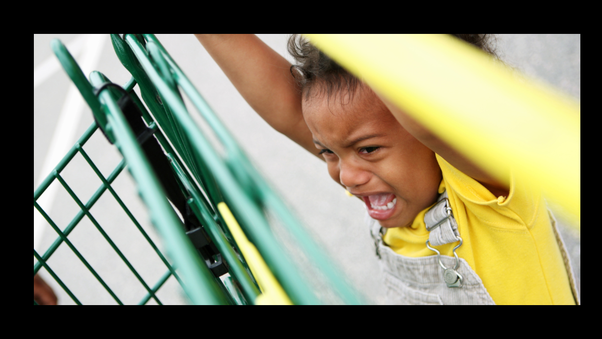 When my kids were young I took comfort in the developmental benchmarks that I could follow to make sure they were on track. Each year I could chart progress and course correct if they weren’t being met. Now that my kids are older instead of charting inches and pounds, I am navigating the uncharted territory of their hearts and minds. Questions like "Will they find their tribe?" and "Can they thrive in a world that feels ever-shifting?" dance in my mind. It's easy to fall into the trap of believing we can control the outcomes, meticulously shaping our kids’ paths into perfect circles. But this is an illusion, a comforting story we tell ourselves to quell the anxiety of the unknown. The truth is, while our guidance and actions have undeniable impact, our children ultimately hold the reins of their own destinies. What they do with the skills and experiences we provide is a beautiful mystery, a testament to their unique agency and is ultimately (spoiler alert) out of our control. So, instead of white-knuckling the wheel, desperately trying to steer towards some imagined ideal, we can choose a different path. We can embrace the inherent uncertainty of raising children, viewing it not as a threat but as an opportunity. We DO have the power to help them cultivate resilience and adaptability – qualities that will serve them well in a world guaranteed to throw curveballs. It’s not easy to hold this truth in the world where we believe we can control everything. But there is hope and some practical things we can do to live in this limbo.
0 Comments
Raising teenagers can feel like navigating a complex maze of emotions, school stress, and ever-evolving social circles. But amidst the whirlwind, one thing remains crucial: healthy relationships. These connections with friends and family act as anchors, providing support, understanding, and a sense of belonging. So, how can we, as parents, help our teens cultivate these vital bonds?
Friendship Foundations:
Family Ties:
Remember that bouncy ball you played with as a kid? The one that no matter how hard you threw it, always bounced back up? That's the kind of resilience we want to cultivate in our teenagers. The ability to bounce back from setbacks, adapt to change, and overcome challenges is crucial for their success and well-being. But how do we do that? This newsletter is your guide to building bouncing teens!
What is resilience? Resilience isn't about never facing adversity. It's about the ability to cope with challenges effectively, learn from them, and come out stronger on the other side. It's like building a mental muscle that grows stronger with each hurdle overcome. Why is resilience important for teens? The teenage years are a time of immense change and uncertainty. From academic pressures to social anxieties, teens face a lot. Resilience helps them navigate these challenges, maintain their mental and emotional well-being, and achieve their full potential. How can we build resilience in our teens?
Building resilience is a journey, not a destination. Be patient, supportive, and celebrate your teen's progress along the way. Together, you can raise bouncing teens who can face anything life throws their way! Navigating the teenage years can feel like a constant rollercoaster – moments of pure joy followed by seemingly insurmountable challenges. Below you will find some strategies to help with teenage anxiety and peer pressure so that you can handle the dip and twists of the whatever roller coaster that you are on.
Confronting the Anxiety Monster:
Peer Pressure - Navigating the Social Maze:
We all know the struggle: those slammed doors, the monosyllabic answers, the seemingly endless abyss between our attempts at connection and their desire for independence. But fear not, here are a few ways that you can navigating the ever-changing landscape of teen communication.
1. Breaking the Ice: Tips for Starting Conversations:
2. Building Bridges: Fostering Open Communication:
 Recently I gave a webinar titled "Supporting the Mental Health and Well Being of Your Teen". I realized after giving the talk that the tips I presented were relevant to maintaining the mental health and well being of everyone in the family, including younger siblings and parents too. The webinar runs about 45 minutes which is likely too long for most busy parents to watch from start to finish. That's why I created a cheat sheet so you can cut straight to the tips and strategies. Give them a listen and then choose one to try over the next few weeks in an effort to weave emotional wellness into your family's daily life. The links below will take you directly to the part of the webinar that explains that strategy. Each is less than a 5 minute listen:  You’ve just entered Target with the kids in tow to grab a few things. You let them know ahead of time that you won't be going to the toy section and you won’t be buying anything for them. You check for understanding and the kids give you the all clear. Proud of yourself for remembering to tell them "the plan" and confident that you can ALL do this, you head inside. Within minutes the kids are asking to go to the toy section. It’s almost as if upon entering the store the Target smell wafted right up their noses and erased any memory of the agreement you made just moments before in the car. “I TOLD you we are NOT going to the toy section today.” Next stop, meltdown city. Not just the kids but also your own. Instead of leaving triumphant with floor cleaner, toothpaste and that last thing you needed for tonight's dinner, mission aborted. Once again you've been defeated by Target. You leave feeling embarrassed that your worst parenting was on display and full of regret for the way you spoke to your kids. While you can't prevent meltdowns there is something you can do RIGHT away, in the moment, that will really help! Click HERE to find out how. Parenting can feel like a roller coaster ride that never ends. You make it through one twist and turn sequence and just like that there’s another one waiting for you around the corner. Let’s face it, as this point there’s no getting off, so instead of death gripping the safety bar, closing your eyes and hoping you don’t hurl, here are 6 ways that you can use challenges to catalyze growth in yourself and our kids. When all is said and done roller coasters are supposed to be FUN, right?!
 July 4th is just around the corner. I know it sounds kind of corny, but I use the holiday to reflect on my children’s growing independence. It’s an easy way for me to remember to take stock of where they are on the journey to living on their own as capable, independent adults. Fostering Independence in our children is important starting at an early age. It can be tricky to find the balance between doing things for them and finding opportunities for them to do things on their own. Even when it’s HARD. Here are some handy tips to get you started:
Happy July 4th!  When your child is in the middle of a huge meltdown, it can be difficult to know what to do. You may feel frustrated, angry, or even embarrassed if you are in a public place. First of all it's important to remember that your child is not trying to be difficult. They are likely overcome by big emotions and have been hijacked by their central nervous system that thinks they are under threat. Under those circumstances they are trying to communicate their feelings in the only way they know how. It’s hard in those moments to remember what to do, because it is likely that you are also triggered by the situation. So here are three things you can do when your child is having a HUGE meltdown:
It's also important to remember that it's okay to walk away from a meltdown as long as your child is safe. If your child is becoming aggressive, it's important to remove yourself from the situation. Go to another room and take a few minutes to calm down. Once you have had a chance to collect yourself, you can go back to your child and try to help them calm down. This won’t work in public, but it is ok to remove your child from the situation and find a safe, quieter place to let their feelings play out. Meltdowns are a normal part of childhood. They can be frustrating for both parents and children, but it's important to remember that they are not a sign of bad parenting or bad kids. By following these tips, you can help your child calm down and begin to explore how to support your child through these tough moments. Parent coaching can help you learn to support your child through meltdowns. Next you'll discover how to help them build the self awareness, self regulation and self control strategies that they can draw on in difficult emotional moments. When we help kids to develop these skills from a young age we set them up for strong emotional resilience as as they grow into teens and adults. |
AuthorJenny Michaelson is a PCI, Archives
January 2024
CategoriesWriting Contributor at:
|




 RSS Feed
RSS Feed



